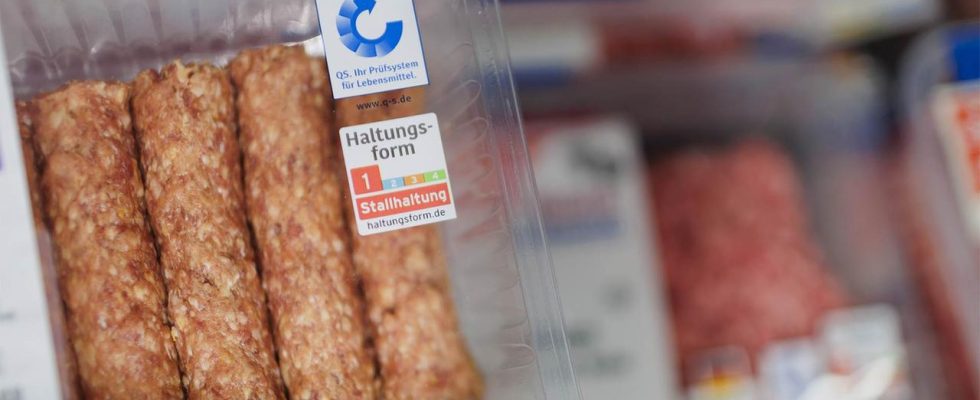Supermarkets show little progress in switching to meat from better husbandry. According to a survey by Greenpeace, 86 percent of the products come mainly from husbandry types 1 and 2.
According to Greenpeace, the food retailers’ conversion to meat from better husbandry forms is making little progress. According to the environmental organization, the proportion of meat from husbandry types 1 and 2 is currently 86 percent. She had queried the supermarket chains Aldi Nord, Aldi Süd, Edeka, Kaufland, Lidl, Netto, Penny and Rewe.
Housing type 1 dominates beef market
The husbandry system is a voluntary labeling system that a large part of the German food retail trade has been using for own-brand fresh meat products since 2019.
Meat from housing types 1 and 2 comes from animals kept in stables. In housing type 3, animals have access to an outdoor climate area or a run. Housing type 4 means that the animals have access to open-air areas at least part of the time.
According to their own statements, food retailers in the self-service area are now labeling their fresh meat products almost everywhere with the type of husbandry.
Greenpeace criticized the fact that type 1 husbandry still dominated the market for beef at 76 percent. However, the largest proportion of organic products is found here at 14 percent.
Metro and Norma without labeling for meat products
The companies Metro and Norma did not answer the questionnaire and according to Greenpeace they do not label their meat products either. “The wholesaler Metro has broad market power and must finally start labeling its products according to the type of husbandry with the mandatory husbandry labeling,” demanded Greenpeace agricultural expert Christiane Huxdorff. “The market could have moved much faster in recent years if the entire trade had pulled together from the start.”
Huxdorff also called on retailers to “consistently” push ahead with the expansion of better forms of husbandry instead of “waiting for the tough political implementation of the labeling”.
The federal government has launched a state animal husbandry label that will initially apply to fresh pork from next year. It will later be extended to other animal species and other areas such as gastronomy and the entire life cycle of animals.
The label provides for five husbandry levels: “Stable”, “Stable+Space”, “Fresh Air Barn”, “Outrun/Pasture” and “Organic”. Consumer advocates have called for the government label to replace voluntary retail labeling to avoid confusion.

